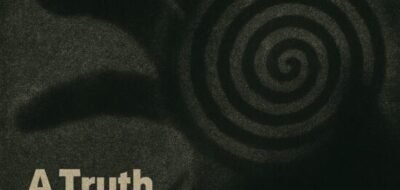There will always be something special about a band that forges their own sound. Breaking free from what mainstream radio wants you to hear is quite liberating…. and in my opinion creates some of the best music! Our new discovery Mighty Jupiter & The Mooncake Band fit that mold perfectly with their fresh sound.
We caught up with the rising Latvian band to get a little deeper into their process and new album. Enjoy the interview here:
First off, tell us about the name Mighty Jupiter & The Mooncake Band.
I’ve always been drawn to the theatrical flair in how bands name themselves. I think it traces back to my love for The Beatles and their Sgt. Pepper’s Lonely Hearts Club Band album. It was their first attempt at cohesive storytelling through an album, almost like a theatrical play where they became Sgt. Pepper’s Lonely Hearts Club Band on the record. That concept stuck with me. I first heard The Beatles when I was four, and from that moment, I knew exactly what I wanted to do in life. Their influence runs deep.
Subconsciously, this love for theatrical band names grew stronger over time. Whenever I came across names like Florence + The Machine, Edward Sharpe and the Magnetic Zeros, Of Monsters and Men, or The Brian Jonestown Massacre, I was instantly hooked. Their names felt like worlds unto themselves—storylines waiting to unfold. So, when it was time to name my own band, it felt natural to follow a similar path.
I’ve always been fascinated by space, and Jupiter has been my favorite planet for as long as I can remember. It made sense to take it as an alias. The rest of the name just clicked into place. Mighty Jupiter & The Mooncake Band came to me like a flash of inspiration, and I knew right away—yeah, that’s it. It had the grandeur, the whimsy, and the story I wanted to tell.
How would you describe your sound?
We call our sound shoehaze—a term coined by Natalie Bibby, the mastering engineer behind our debut album, Forced Fun For The Just OK Life. But rather than just a style, shoehaze is more of an approach. It’s about layering contrasts—dreamy atmospheres with sharp edges, elegance with grit, and chaos with control.
Musically, it draws from shoegaze’s immersive textures but pushes beyond it. We weave together elements of baroque pop’s sophistication, blues rock’s rawness, punk’s defiance, indietronica’s electronic pulse, and pop hooks. Each track feels like a world of its own, but they all exist under the same haze-filled sky.
We’re less focused on fitting into a genre and more focused on capturing a feeling. Shoehaze is a way of telling stories where every layer of sound, every rise and fall in intensity, reflects something deeper. It’s music for those who seek an emotional connection that lingers long after the song ends.
Which bands have had the biggest influence on Mighty Jupiter?
Countless influences have shaped Mighty Jupiter’s sound. It all started with The Beatles, as I mentioned.
Punk and Oi! had a massive impact, from the icons like Sex Pistols, The Offspring, Green Day, NOFX, Cock Sparrer, and Ramones to underground gems like Operation Ivy, Sewer Trout, The
Lookouts, The Eyeliners, and Verlorene Jungs. Punk’s raw energy and DIY ethos still pulse through my music.
The 1980s and 1990s pop scene was equally formative, with bands like The Smiths, Pulp, and Tears for Fears influencing my love for rich melodies and vivid storytelling. Then there’s shoegaze and dream pop—Lush, My Bloody Valentine, and Cocteau Twins—all masters of atmosphere, mood, and textured soundscapes.
I’m also drawn to the unconventional approach of alternative and indie pioneers like The Pixies, Throwing Muses, Devo, and Quickspace, who taught me the value of unpredictability in music. And of course, there are the timeless greats like Pink Floyd, Peter Gabriel, and Men At Work, whose genre-defying creativity showed me that music could be grand, strange, and deeply human all at once.
Classical music and academia have also had a profound impact on my creative process. Composers like Vivaldi, Bach, Stockhausen, Hans Zimmer, and John Adams taught me the importance of structure, thematic development, and tension. These influences push me to think beyond conventional song structures and embrace complexity in both composition and production.
Too many names to list, but all of them live somewhere in the DNA of Mighty Jupiter’s sound.
How does a song/album come together for the band? Tell us about your songwriting process.
Every song comes to life in its own way. Some are born from fragments of chords, melodies, or progressions that, over time, find their perfect match. I might have a hook I wrote 20 years ago, waiting for the right moment to give it a home. Eventually, those scattered pieces click, and I build a story on top of the instrumental arrangement.
Other songs arrive fully formed—music and lyrics together—while strumming a guitar or experimenting on a keyboard. Then there are tracks that start with the story itself, where the concept or message drives the entire process, with music following naturally. No two songs follow the same path, and that unpredictability is part of the thrill.
At any given moment, I have 40-50 tracks in progress, constantly juggling them until patterns begin to emerge. From this pool, I narrow it down to 10-15 tracks that feel like they belong together thematically. That’s exactly how Forced Fun For The Just OK Life took shape. Over two years, I recorded, rearranged, and reimagined the tracklist until the concept became clear.
Your newest album Forced Fun For The Just OK Life seems to tackle a lot. Give us a look inside the stories.
The songs on Forced Fun are tied together by themes of resilience, disillusionment, and the search for meaning in a world that often feels “just okay” because you were told that it is. It explores the idea of being forced to participate in socially accepted behaviors—like smiling on cue, or asking “How are you?” when neither party truly cares—until the realization hits that your existence is becoming robotic, or worse, numb.
This sense of numbness goes deeper than just daily social scripts. It reflects how we end up ignoring the problems that actually matter—mangled relationships, acting out of fear, and the inability to connect with people without wearing masks.
In the end, Forced Fun became more than a collection of songs—it became a narrative about reclaiming your humanity in a world that quietly demands you lose it. Beneath its reflective lyrics lies a sharp undercurrent of sarcasm—not the bitter kind, but the kind that serves as a coping strategy. It’s the kind of wit that exposes the absurdity of it all, invites a wry smile, and somehow gives you the strength to push forward.
Songs such as “The Lake” delve into nature’s ability to inspire renewal and personal growth, whereas “Super Me” represents a bold stand against societal expectations and a quest for freedom.
“Fireworks” offers a poignant look at fragmented childhood memories, intertwining feelings of nostalgia with subtle unrest. Meanwhile, “Catch Me Now” resonates with a sense of urgency, highlighting the importance of breaking free from harmful relationships.
Other songs, like “Renewal” and “Stardust and Rust”, examine the passage of time and the inevitable transformations it brings, often forcing a reckoning with one’s past.
What do you hope the listener takes away from your music?
I hope listeners find a sense of connection and catharsis in our music. Life often feels like a series of forced performances—doing things because you’re “supposed to” rather than because you want to. But there’s also the “need to”—not because someone commands it, but because it’s simply the right thing to do.
The tricky part is that you might not even realize how much these unseen forces shape your choices. And sometimes, leaning into that “need to” can actually make life better. Balancing all three—want, supposed to, and need to—is no small feat.
Through Forced Fun For The Just OK Life, I want people to feel seen in that struggle. The songs confront the absurdities of modern existence—the hollow pleasantries, the quiet disconnections, and the numb acceptance of broken relationships. But at the same time, there’s hope woven into the chaos.
I hope listeners walk away feeling like it’s okay to question the roles we’re handed. It’s okay to pause, to stop pretending, and to carve out something more authentic. Whether they’re moved by a melody, a lyric, or just the sheer atmosphere of the music, I want them to leave with a renewed sense of self, a recognition of their own strength, and maybe even a rebellious spark to push back against the “just okay” life.
Share some advice for other bands trying to create a fresh and unique sound.
Be persistent and cohesive. Experiment fearlessly, record everything, and most importantly—put it out into the world. It will take time to find something that feels emotionally and sonically satisfying, not just for you, but for your listeners as well.
I’ve been creating music for over 25 years, and it wasn’t until my early 40s that I felt I’d truly found my voice as a musician. The journey isn’t a straight path. It’s a process of discovery, trial, and reflection. There will be moments of doubt, but the key is to stay the course. Every failed attempt is another step closer to something that feels authentic.
Don’t blindly chase trends. Follow what feels true to you. If you’re being honest with yourself, the sound will be fresh by default—because it’s yours. Cohesion doesn’t mean everything needs to sound the same. It means the heart and intent behind the music are undeniable. Your audience will feel that.
Lastly, don’t let fear of imperfection stop you from releasing your work. Nothing will ever feel “finished” in the moment, but letting your songs live in the world is part of the process. It’s through release that you gain the perspective to grow. If you wait until it’s “perfect,” you might never release it at all.
What does the future hold for Mighty Jupiter & The Mooncake Band?
We’re gearing up for an exciting year ahead. In January 2025, we’ll release a live album and concert video titled A Colossal Gig for An Intimate Few, capturing the raw energy and emotional depth of our live performance. This will be followed by a two-song single release in February, offering a glimpse of what’s to come.
Our next major goal is to connect with booking agencies and secure festival slots across Scandinavia, the UK, Italy, and the USA. We’re aiming to bring the immersive nature of shoehaze to new audiences, taking our sound from intimate spaces to larger festival stages.
Meanwhile, we’ve already started working on new material for our next album, with the two-track single serving as part of it. The process is in full swing, and we’re solidifying our lineup with Maria Smirnova, who recently joined the band as a key vocalist alongside me.
This next album will continue to explore the themes we’ve touched on before, but with fresh perspectives, more intricate arrangements, and bolder creative risks. Unlike our previous work,
this time we’re aiming for label support rather than self-releasing, allowing us to reach a wider audience. The working title of the album is The Album Of The Century—those who know us, know our lyrics, will get the true vibe behind the name.
Ultimately, the goal is to take Mighty Jupiter & The Mooncake Band from an “intimate few” to festival crowds, new countries, and more daring artistic ventures. It’s about growth, visibility, and taking every sound, every story, and every performance to the next level.
Keep up with Mighty Jupiter & The Mooncake Band on their INSTAGRAM









